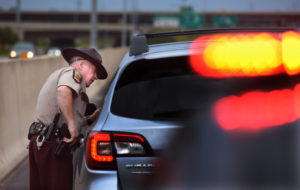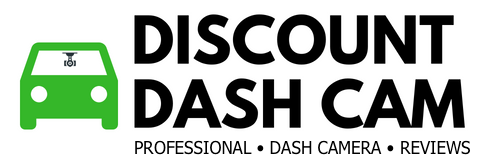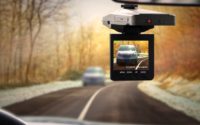How To Beat A Traffic Ticket In Court with Dash Cam Video Evidence
Have you ever been stopped for a traffic violation which you know you didn’t commit?
Sometimes politely asking the police officer if you can show them the dash cam footage as proof can be a quick and easy way to dispute a traffic violation before a ticket has been issued. If the officer doesn’t wish watch it, its okay to let them know you will be certain to bring the footage to court to contest the ticket.

Moving traffic violations are normally the type of violations that will add points on your driving record and ultimately raise your auto insurance rates.
In New York State a two-way dash cam saved a driver from receiving a ticket for using his cellphone while driving. The officer respectfully let the driver go without a ticket after having a chance to witness the dash cam footage showing the driver was indeed not talking on his phone, but merely scratching and tugging on his ear.
# 1 Make Sure You Always Cooperate
Always be as cooperative as possible when you’re faced with a potential traffic violation. If a police officer requests your name, its always best to provide it. Giving your name isnt a going to harm you in any way. Be as polite and as kind as possible.
#2 Don’t Forget You’re On Camera Too
Don’t forget that whatever occurs will be captured by the officer’s dash cam too (assuming their vehicle is equipped with one as well). These cameras always record both video and audio of each traffic violation. Remeber that anything you say pr do will be made available to judge.
#3 Make Sure You Stay Center Stage
Request that all of your interaction between you and the police officer stays front and center in the view of the dash cam. Evidence provided by these cameras can result in two different outcomes as it all depends on what is clearly seen and heard.
Be aware that a police officer might ask you to step out of range of the camera, claiming that the area within range of the dashcam is unsafe due to “traffic conditions”. The officer’s suggestion could be well-intended or for their own personal interest. If the officer tries to ask that all your interaction occur away from the dashcam, you 100% have the legal right to request that the officer stay on camera and then tell them that you don’t feel safe having this interaction off camera.
#4 Legal Council Is Important
Hiring an experienced lawyer means finding someone who has experience with investigating dash cam evidence. Your lawyer will typically ask for a copy of your footage as well as the footage from the police authorities as well. The longer the footage you are able to provide the better as this will help protect you from false statements that a different set of experiences happened before the footage started.
Its important not to make any specific assumptions that a police offer has a dash cam or that they had it turned on. Some police departments haven’t installed them yet as they are still awaiting funding, and believe it or not, some dashcams are not fully connected or operable. Either way, it is always good to ask your lawyer to request evidence on both sides.
#5 Arguments Don’t Get You Anywhere
Simply, don’t be disrespectful, argumentative or confrontational to an officer. A defendant seldom wins the favor of a judge or jury with such behavior, even if you are in the right.
#6 Do not forget the Fourth Amendment
Don’t forget that you have Constitutional rights that you can assert in the event of a traffic stop. The Fourth Amendment bars police officers from conducting unreasonable searches and seizures. However, if a police officer can reasonably state why a search of your vehicle is necessary, he or she might be able to search your car despite your refusal. This is called probable cause, and his reasons should be caught on the dashcam as well.
#7 Do not presume that just because there’s a dashcam, you will win
Don’t assume that just because a dashcam is in use, and that you conducted yourself properly, that you will prevail in court. Guilt or innocence is determined by the weight of all evidence presented in court, and ultimately the decision is up to a judge or jury. The best thing you can do is present yourself as polite and respectful to an officer so that the judge will see your actions in a good light.
#8 Do not represent yourself in court
Don’t assume you can represent yourself successfully in court without legal representation. A good lawyer can help make the most of all the evidence – including dashcam footage – in building a case on your behalf.
How To Beat A Traffic Ticket In Court with Dash Cam Video Evidence// Discount Dash Cam



